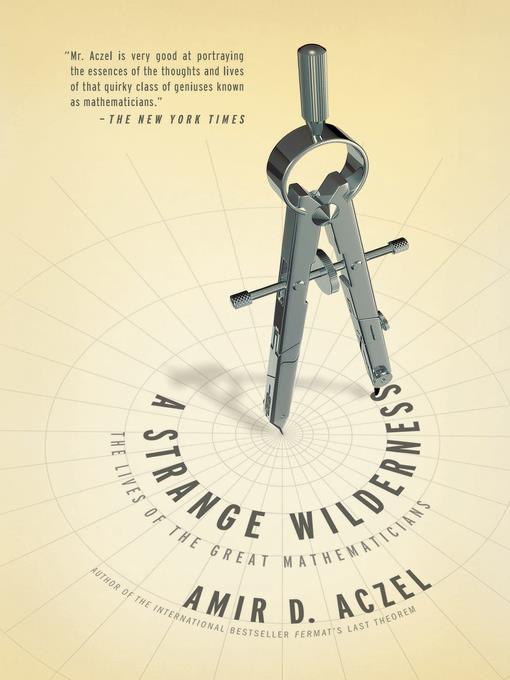
A Strange Wilderness
The Lives of the Great Mathematicians
کتاب های مرتبط
- اطلاعات
- نقد و بررسی
- دیدگاه کاربران
نقد و بررسی

August 15, 2011
Prolific science writer Aczel offers a grab bag of biographical sketches of important mathematicians: starting with the “rope-pullers” in ancient Egypt, who determined property lines for farmers’ fields after the Nile floods receded each spring. Included is the story of Anaxagoras of Clazomenae, first in a long line of mathematicians and scientists (Kepler, Galileo, Descartes, and Cantor—to name a few) whose groundbreaking work earned professional scorn and charges of heresy. During Europe’s Dark Ages, progress came from Arabs like Al-Khwarizmi, the man who popularized algebra and the numerals we use today. Some of the history is muddled: Aczel attributes the invention of calculus to both Gottfried Leibniz and Isaac Newton, without clarifying how their two approaches differed. Thanks to better documentation, more recent figures have much richer biographies, but most of Aczel’s synopses lack real eccentricity, which comes as a disappointment after he enthuses about math’s “fascinating subculture with its own peculiarities and idiosyncrasies” in the preface. The book works best as an episodic overview of important names in the field and the context in which they worked.

October 15, 2011
Popular science writer Aczel (research fellow, Boston Univ.; Fermat's Last Theorem) outlines in his latest title some of the greatest mathematical achievements in human history. Beginning with the ancient Egyptians, Aczel makes his way to the 20th century, recounting mathematical discoveries through the biographies of great mathematicians. Giants of Western thought--Pythagoras, Descartes, Newton, Cantor--appear here as do lesser-known mathematicians like Li Zhi of medieval China and Emmy Noether of Nazi-era Germany. Throughout, Aczel is an engaging narrator, supplying explanations of mathematical theory for the uninitiated and placing each discovery within its very human context. Divided by mathematician and prominent theory, the book could be read as a complete narrative or by topic. VERDICT This book offers something to readers interested in both science and the humanities. Recommended as a brief but tantalizing introduction to the history of mathematics.--Talea Anderson, Walla Walla, WA
Copyright 2011 Library Journal, LLC Used with permission.

October 1, 2011
Like Bill Bryson's A Short History of Nearly Everything (2003), Carl Sagan's TV series Cosmos, and Aczel's own Fermat's Last Theorem (1996), this lively, enlightening, frequently surprising book focuses in roughly equal proportions on key discoveries in human history and the people who made them. It's the story of mathematics told with an enthusiasm that captures the reader's interest from the get-go. Beginning at the very beginning, ancient Mesopotamia, Kurlansky leads us through Greece and Rome, Alexandria, Europe and the East, up to the stunning breakthroughs in the first half of the twentieth century (which leaves the door open for a sequel). Aczel writes clear, simple prose, keeping technical terms and complex arithmetic to a bare minimum (though there are some passages that those not well versed in math may have to read a few times) and showing how mathematical exploration is a journey that began five millennia ago and shows no signs of stopping anytime soon. An excellent book, ideal for general readers.(Reprinted with permission of Booklist, copyright 2011, American Library Association.)

























دیدگاه کاربران